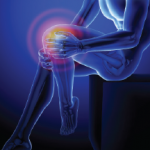Specifics May Matter
One study suggested that bucket-handle tears may be more responsive to surgeries than anterior or posterior horn tears. This difference was not obvious in patients who had less than 30% of the meniscus removed. However, a 30% to 99% excision yielded better symptomatic relief in patients with bucket-handle tears as opposed to anterior or posterior horn tears. Further, a meta-analysis suggested better outcomes after meniscal repair than after meniscectomy. That said, the patients receiving meniscal repair had a higher reoperation rate than those receiving meniscectomy.
The authors concluded their paper by calling for a randomized controlled trial of arthroscopic meniscal surgery vs. nonoperative treatment. They explain that such studies should have preceded the widespread adoption of arthroscopic meniscal surgery and should be done now to support the evidence-based practice in meniscal surgery.
Lara C. Pullen, PhD, is a medical writer based in the Chicago area.
Reference
- Monk P, Garfjeld Roberts P, Palmer AJ, et al. The urgent need for evidence in arthroscopic meniscal surgery: A systematic review of the evidence for operative management of meniscal tears. Am J Sports Med. 2016 Jul 18. pii: 0363546516650180. [Epub ahead of print]


